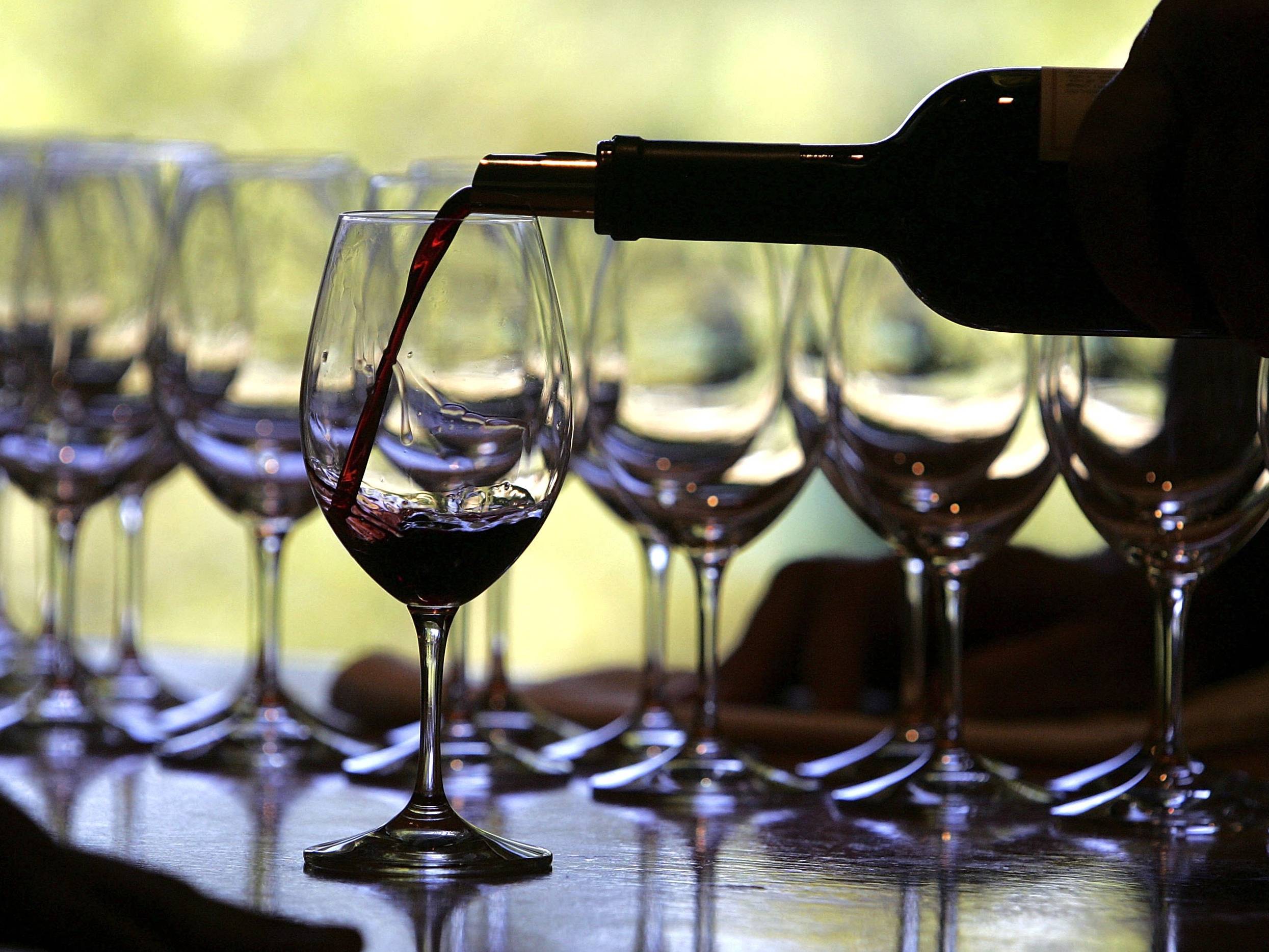Drinking six glasses of wine a week could be good for your eyes, study says
A new study has found that drinking alcohol could lower your risk of developing cataracts

Drinking six glasses of wine a week could be good for your eye health, according to a new scientific study.
The research found that those who consume up to 14 units of alcohol per week are less likely to develop cataracts.
Cataracts are cloudy patches that appear in the lens of the eye and can lead to a decrease in vision and are most common in older people. Cataract surgery is the most common surgical procedure in the UK, with around 450,000 operations of this kind carried out every year in England.
The study into links between cataract surgery and alcohol consumption was carried out by Moorfields Eye Hospital NHS Foundation Trust and University College London’s Institute of Ophthalmology.
The research, which is the largest of its kind to date, analysed data from more than 490,000 people in the UK Biobank and EPIC-Norfolk cohort studies. Participants in these studies give detailed information about their health, lifestyle and circumstances throughout their lives.
Read more:
- Kate Middleton’s uncle weighs in on claims she made Meghan Markle cry
- The most popular baby names of 2021 so far
- My husband and friend have been ‘sexting’ during lockdown
- Seaspiracy: The 7 biggest claims from the new documentary
- Princess Eugenie got into trouble with royals for sharing behind-the-scenes palace photo
The study’s findings show that those whose alcohol consumption was within the government-recommended amount of 14 units of alcohol per week were less likely to have cataract surgery.
The risk was lower among those who drank wine, compared with people who drank beer or spirits. The risk of cataract surgery was 23 per cent lower for those within the EPIC-Norfolk cohort who drank wine at least five times a week and 14 per cent lower within the UK Biobank cohort for the same alcohol consumption category.
Dr Sharon Chua, first author of the paper, which has been published in the journal Ophthalmology , said that the link could be attributed to the antioxidants present in wine.
Chua said: “Cataract development may be due to gradual damage from oxidative stress during ageing. The fact that our findings were particularly evident in wine drinkers may suggest a protective role of polyphenol antioxidants, which are especially abundant in red wine.”
Dr Anthony Khawaja, who led the research, added: “We observed a dose-response with our findings – in other words, there was evidence for reducing chance of requiring future cataract surgery with progressively higher alcohol intake, but only up to moderate levels within current guidelines.
“This does support a direct role of alcohol in the development of cataract, but further studies are needed to investigate this.”
The NHS advises that men and women should not “regularly drink more than 14 units a week” in order to “keep health risks from alcohol to a low level”. Its advice also states: “If you drink as much as 14 units a week, it’s best to spread this evenly over 3 or more days”.
If you’re concerned about your drinking or someone else’s, the NHS recommends seeing your GP.
Join our commenting forum
Join thought-provoking conversations, follow other Independent readers and see their replies
Comments
Bookmark popover
Removed from bookmarks